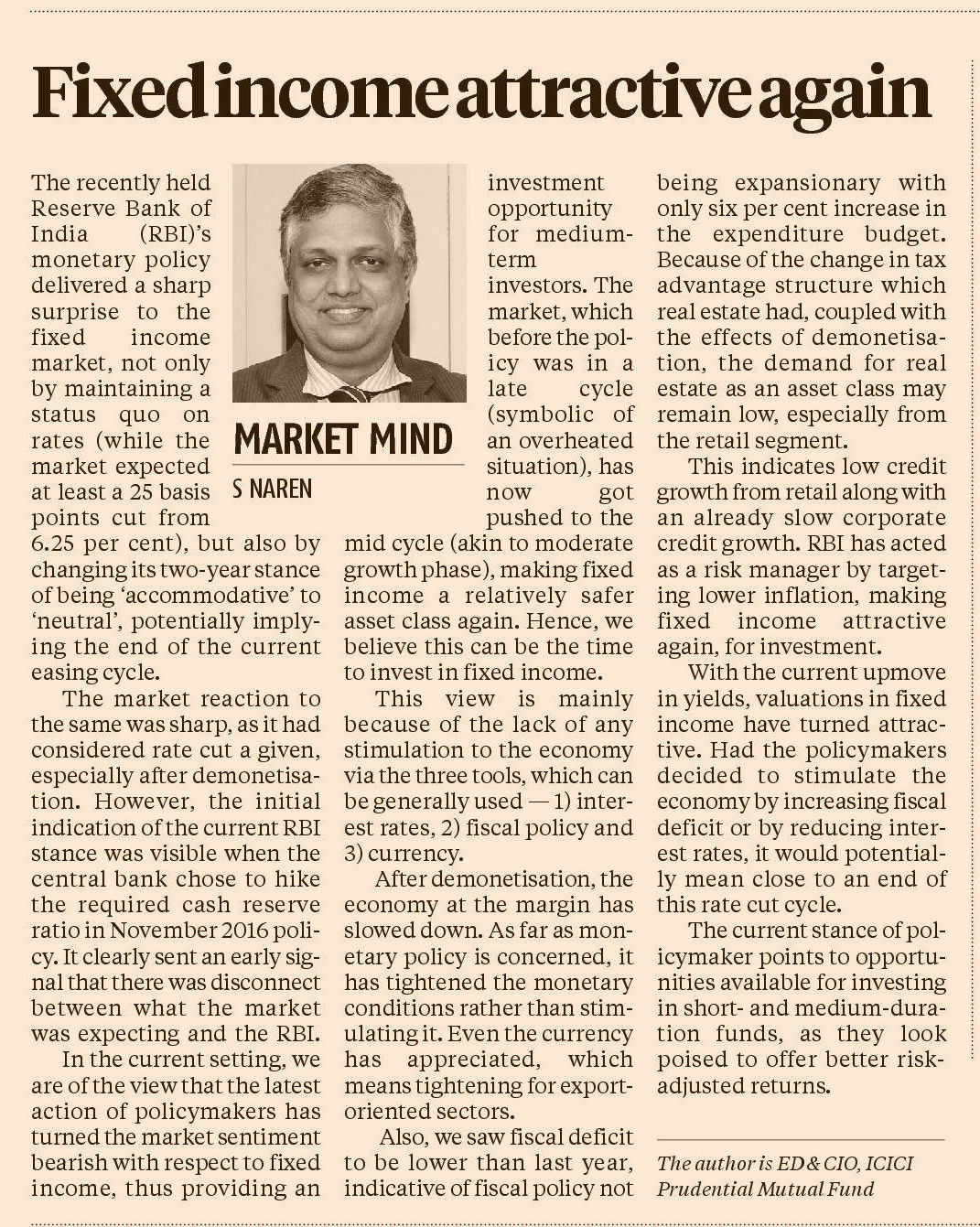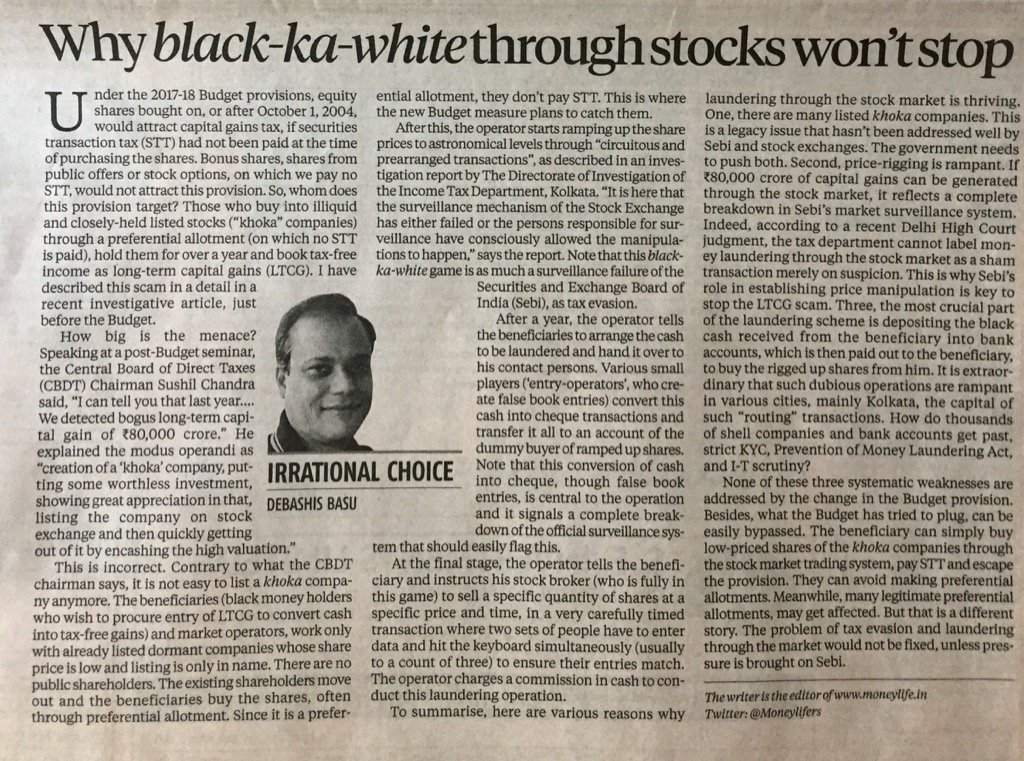Hat Tip: Manoj Nagpal
Category: Excerpts
This is what a bull run feels like
The initial public offer (IPO) of Avenue Supermarts, the owner of DMart, which is likely to be floated in the next few weeks, is expected to command a valuation of 18,000 crore, much higher than the earlier expectation of `7,000 crore
According to sources, domestic fund houses are queuing up to meet the company management, which has already conducted roadshows overseas. “I am hearing that the management is very selective in the kind of investors it wants to attract and hence is not giving meetings easily ,“ said an analyst with a leading insurance company .-from ET
Source : Debashis Basu
Private equity funds and holders of stock options were thrown into confusion by a Budget provision aimed at plugging a black money loophole, fearing that it could land them with a hefty tax bill. Those who acquired shares in unlisted companies after October 1, 2004, will have to pay 10% longterm capital gains tax if they hadn’t paid securities transaction tax (STT) at the time of purchase.
Currently, income arising from the transfer of long-term capital assets such as stocks is exempted from tax if the sale took place on or after October 1, 2004. STT, which was introduced that year, typically applies to listed stocks.
Revenue secretary Hasmukh Adhia sought to allay concerns regarding the measure. “We will come out with detailed rules to exclude genuine investments such as those made through initial public offer, foreign direct investment, Esops (employee stock options),” he said. The measures were aimed at preventing evasion of capital gains via investment in bogus companies. Pending the clarification, there is trepidation that a potent incentive that has helped fuel India’s startup economy could be undermine ..
“An unintended consequence of this rule is to potentially place an onerous tax burden on Esops — which represent the most powerful wealth-creation instrument that cash-strapped startups use to motivate employees,” said Gopal Srinivasan, chairman of the India Venture Capital Association (IVCA).
Punit Shah, partner, Dhruva Advisors, said the new rules will apply to all domestic investors, including promoters of unlisted Indian firms. “They would acquire shares either by subscription or in the form of any group restructuring and would not pay STT at the time of acquisition. But now they may have to pay long-term capital gains tax on exit even after listing of such shares,” he said.
Another announcement, hidden in the fine print, is the aim to collect more tax if shares of an unlisted company are sold below fair value. This may impact private equity investors who often sell stocks of closely held companies to other financial investors. For instance, if a share purchased at Rs 100 is sold for Rs 150, the 20% tax on longterm capital gains would be Rs 10 a share. But not if the taxman thinks that the fair value of the share is higher than Rs 150 — say, Rs 170. Here, the tax would be 20% on Rs 70 (and not Rs 50), thus raising the tax outgo to Rs 14 (instead of Rs 10) a share. –from ET


